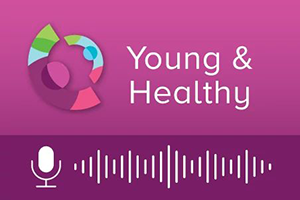Getting Tested for Antibiotic Allergy
Recent studies have shown that it is safe to re-expose children to antibiotics implicated in allergic reactions and that 95% of children who were thought to be allergic will not have a reaction when tested. The Pediatric Antibiotic Allergy Testing Services (PATS) at Cincinnati Children’s is available for patients admitted to the hospital or seen in outpatient clinic appointments.
For more information, call 513-517-7287 (PATS) or send an email to PATS@cchmc.org.
What is the testing like?
According to Kimberly A. Risma, MD, PhD, who leads the Drug Allergy Program, the testing is simple and safe and should be offered to all children who are labeled as having an antibiotic allergy. Children may be seen when sick with an illness, receiving their first dose of preferred antibiotic in our office, or at a scheduled time when they are healthy. We test for an allergy to antibiotics by giving a dose of antibiotics by mouth and watching for a reaction. If there is not a reaction in the first 48 hours of the challenge, your child is not allergic.




